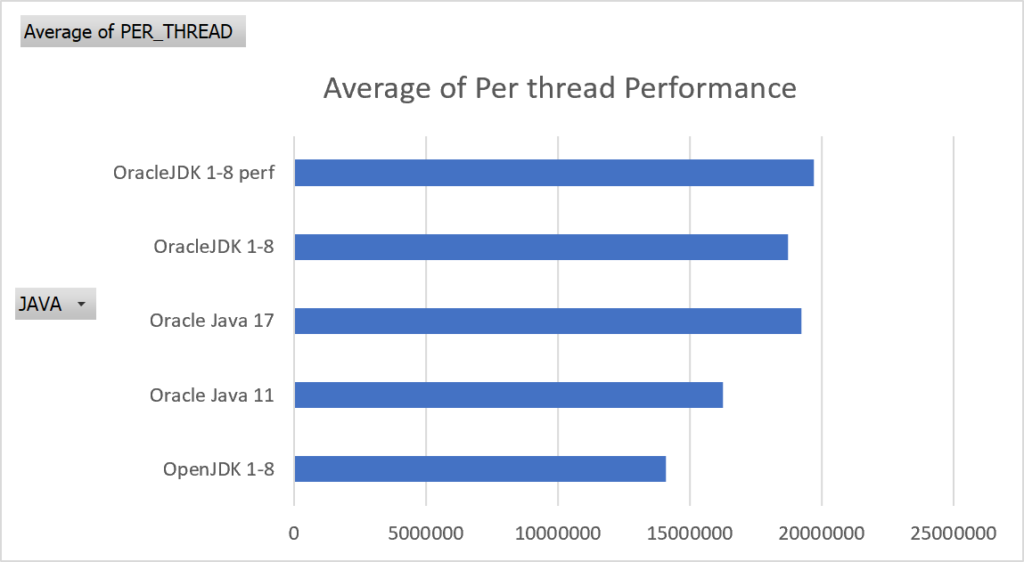It’s important to note that Java performance can differ across various versions of the software, influenced by several factors. It’s not uncommon for developers and application owners to be caught off guard, as the latest Java version may not necessarily provide optimal performance.
- Compiler Enhancements – Whenever a new version of Java is released, it comes with improvements to its Just-In-Time (JIT) compiler. This compiler is responsible for optimizing bytecode during runtime, and the enhancements made to it can lead to better code optimization, improved memory management, and enhanced performance for particular types of applications.
- Garbage Collection Algorithms – In Java, the garbage collector plays a vital role in freeing up memory that is no longer in use. With each version of Java, the GC algorithms may undergo modifications to enhance its efficiency in garbage collection and minimize pauses caused by GC activities. These modifications can greatly influence the performance of memory-intensive Java applications.
- JVM Tuning – As new versions of Java Virtual Machine (JVM) implementations are released, they can be optimized and tuned by their respective vendors. These optimizations may include changes to memory management, thread handling, synchronization mechanisms, or other components that can boost performance for specific workloads or scenarios. Oracle’s Performance Enhancement for Java 1.8 is a great example of this.
- Bug Fixes and Performance Enhancements – Users often provide feedback and real-world usage scenarios that help improve new versions of Java. These updates often fix bugs and enhance performance, resulting in improved stability and overall performance.
- New Features and APIs – Developers can enhance the performance of their applications by taking advantage of the latest Java versions, which may introduce new features, APIs, and libraries. These additions can provide more effective means of handling specific tasks and allow developers to optimize their code more efficiently. By utilizing these new features and APIs, developers can potentially improve their application’s overall performance.
I was recently called upon to provide some evidence of what was faster, and the results I obtained were quite surprising! In order to conduct an assessment, I conducted a basic CPU examination on an Ampere Arm server. The operating system that was used was Oracle Linux 8, and I installed the latest versions of OpenJDK 1.8, Oracle JDK 1.8, Oracle JDK 1.8 with enhanced performance, Oracle JDK 11, and Oracle JDK 17 to carry out the evaluation. Yes, Oracle JDK is in the list twice, because in October of 2022, Oracle released an enhancement to Oracle’s JDK 1.8 build that promised JDK 17 performance for older JDK 1.8 applications. The Pack is included in a Java SE Subscription, as well as on OCI.
Based on this simple test, Oracle 1.8 with the performance pack is the best, and OpenJDK was the worse, with Oracle’s Performance JDK being about 28% faster! For an application, that is a huge jump! Also, oracle’s JDK 17 was only 2% slower, which on some systems might not even be noticed. The bonus with all the other enhancements to Java means JDK 17 would be my choice for any new applications.

It’s worth noting that while newer Java versions often aim to improve performance, there may be cases where certain applications or code segments may experience performance regressions due to changes in the JVM behavior or other factors. Therefore, it’s essential to test and benchmark your specific application with different Java versions to determine the performance impact and identify any necessary optimizations or adjustments.
Now what’s next on my Java performance research… Arm vs Intel and AMD systems!
Very nice, and a little surprising! Thanks, Erik!
Wait till you see what’s next! I discovered another interesting Arm advantage!